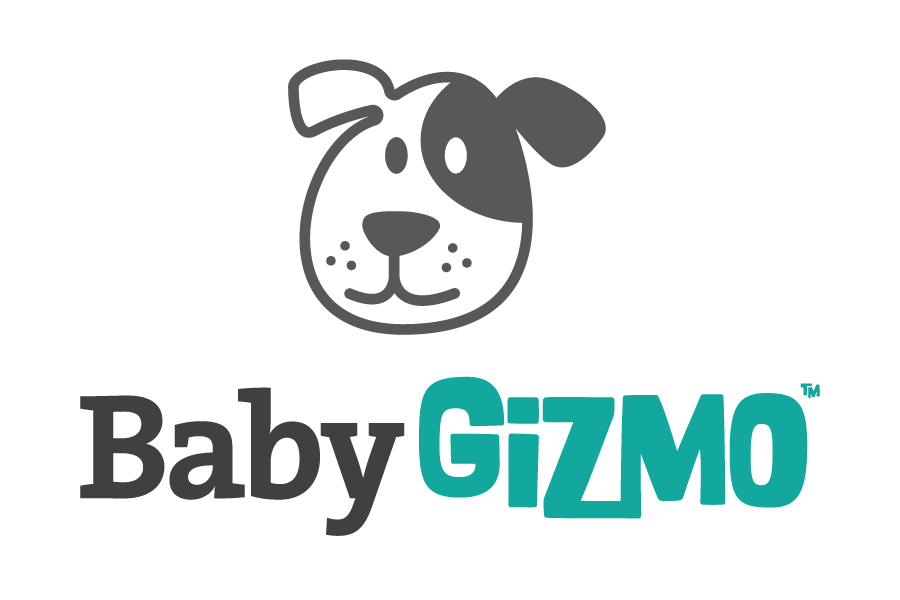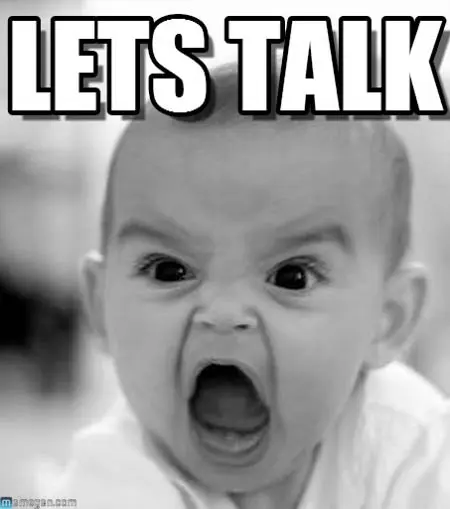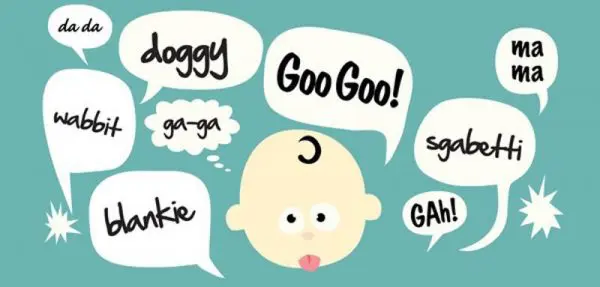Look, I get it. It’s freaking adorable when your child starts their baby talk, mispronouncing words or stumbling to mimic what you’re saying. They are trying to develop their first language and with that, many lovable moments happen that make you want to hold on to them in this baby stage forever. But baby talk is just that: for BABIES. You haven’t been a baby for years, so when it comes to YOU speaking in baby talk—cut it out.
Baby talk is an important part of a child’s speech development so we shouldn’t discourage it. But we don’t have to encourage incorrect pronunciation and grammar, either. Let me give a good example of what I mean when I say “baby talk:”
Wa-wa for “water.” Your 16 month old may not be able to pronounce the full word and thus, will adorably proclaim they want their “wa-wa.” But that does not mean you should respond with the same kind of talk. By responding with the correct pronunciation of the word, “water,” you utilize another moment to teach your baby. Through your repeated example, your baby will pick up on inflections and syllables as you voice the word he or she meant. The more your baby hears the correct way to say a word, the sooner he or she will develop his/her speech more accurately and be able to say “water” correctly. Do this, and you’ll be adding a new, real word to their vocabulary. Plus, you just sound dumb saying, “You want your wa-wa?” when you’re a grown a** woman.
Think of it this way: When learning a second language, you will stumble through pronunciation and grammar, sentence structure and vocabulary. You’ll need to be corrected in order to improve, right? It would be incredibly frustrating to be saying a word wrong, the teacher repeating your incorrect pronunciation because it’s “cute,” and then finding out later while being teased or judged that you’ve been saying it improperly the entire time. How is teaching a child their first language any different? It’s easy to correct your kid without shaming them for getting it wrong. Just repeat back what they said using the correct word. For example, your kid says, “Wa-wa pease.” You respond, “Water, please? Okay, here is your water.”
There’s a big difference between allowing your kid to keep pronouncing something wrong and waiting to correct/teach them just because it’s cute. Hey, if a little laughter to your day from your kid saying “shit” instead of “sit” is what you need, then by gosh, you let him keep saying it! But doing this, letting him say it for a while, is different from purposefully using baby talk yourself. You can get your laugh from your kid unintentionally cursing but you don’t need to use the same word back when you tell him to “sh** down” for dinner.
One more big reason to stop using baby talk as an adult: your child will come to depend on you to translate everything. We all want to feel like our kid needs us the most and that “mother knows best.” But if your child can’t communicate basic desires or questions because they use baby talk or nick names, when they could have been clear if taught correctly—that’s hindering them in a major way. They will always turn to you to translate. Babysitters, friends, strangers at stores will need you to translate because your kid doesn’t use universally known terms. Your teenage babysitter won’t know that “bla-bla” means your child’s special comfort blanket, leaving your child distressed and frustrated that they haven’t been understood. It may be cute to you, but it’s incredibly annoying for anyone else not in your immediate circle. Toddlers are hard enough to understand without them using a totally different, or made up, word.
So please, just stop the baby talk. Help your kid learn their language correctly and stop annoying those around you who are subjected to hearing you use silly words and baby voice tones.
If you’ve got a good argument why baby talk as an adult is perfectly fine, I’d love to hear it in the comments below!


